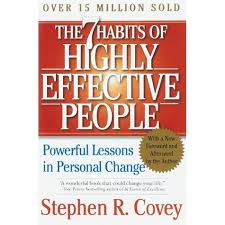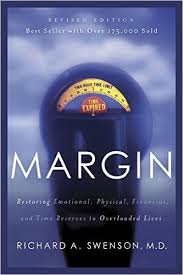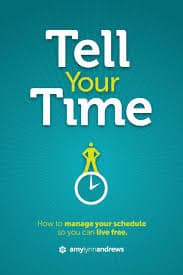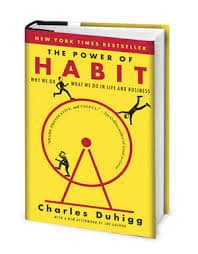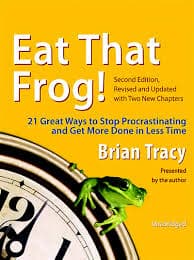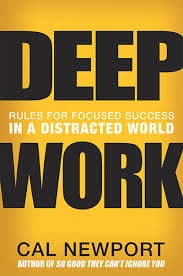Life management is complicated these days. There’s so much to juggle. There are so many demands on our time, efforts and energy. There’s a lot of advice out there.
These are my favorites.
Practical. Actionable.
It helps to have a plan. It helps to have a guide. Someone who’s been there before and is winning the game.
At school you have a teacher to tell you what to do. At work you have a boss.
But when it comes to managing your life, you have to boss yourself.
We can use help from those who are further along on this journey than we are. We can glean wisdom from the masters.
(Disclosure: this post contains affiliate links. At no extra cost to you, a small portion of your purchase goes to support this site.)
The 7 Habits of Highly Effective People by Stephen Covey
7 Habits is a classic for a reason.
The seven habits are highly actionable. They permeate everything you do, giving you a framework for your life.
Covey fully explains the seven habits as well as fleshing out practical implementations with some of the best stories in all of self-help literature.
The seven habits are:
- Be Proactive.
- Begin with the End in Mind.
- Put First Things First.
- Think Win/Win.
- Seek First to Understand, Then to Be Understood.
- Synergize.
- Sharpen the Saw.
Margin by Richard Swenson
“Margin is the space that once existed between ourselves and our limits. Today we use margin just to get by. This book is for anyone who yearns for relief from the pressure of overload. Reevaluate your priorities, determine the value of rest and simplicity in your life, and see where your identity really comes from. The benefits can be good health, financial stability, fulfilling relationships, and availability for God’s purpose.”– from Amazon
Tell Your Time by Amy Lynn Andrews
Amy calls it her unique selling proposition to offer a short book on time management. At only 52 pages, it fulfills that requirement. It’s also economical at $2.99.
She incorporates and implements a lot of the principles found in the books Margin and The Seven Habits of Highly Effective People, but distills them into a shorter format.
I learned from her blog why she turned down a traditional book publisher. The book publisher wanted it 7 times longer, to justify the cost of printing and selling the book.
Of course, that defeated her purpose. Which goes to prove a lot of books are “stuffed with fluff” (to quote Winnie the Pooh) in order to make them long enough to print as a traditional book.
Tell Your Time is concise and practical.
The Power of Habit by Charles Duhigg
“In The Power of Habit, award-winning business reporter Charles Duhigg takes us to the thrilling edge of scientific discoveries that explain why habits exist and how they can be changed. Distilling vast amounts of information into engrossing narratives that take us from the boardrooms of Procter & Gamble to the sidelines of the NFL to the front lines of the civil rights movement, Duhigg presents a whole new understanding of human nature and its potential. At its core, The Power of Habit contains an exhilarating argument: The key to exercising regularly, losing weight, being more productive, and achieving success is understanding how habits work. As Duhigg shows, by harnessing this new science, we can transform our businesses, our communities, and our lives.”– from Amazon
Not many books fit in the category of life-changing.
This one does.
The Power of Habit by Charles Duhigg changed my life.
Eat That Frog! by Brian Tracy
Eat That Frog! is a quick read. It is a compilation of wisdom from many gurus of time management, self-management and motivation. The subtitle is “21 Great Ways to Stop Procrastinating and Get More Done in Less Time.”
If I have one beef with the book, it’s that he doesn’t attribute his ideas to the original authors. But, the content is gold.
Simple and profound. So why isn’t everyone doing it? Because it’s hard. At least, it’s hard to start.He does tackle the psychological side of motivating yourself to do difficult things.
It is a book full of action points, laced with a few stories to illustrate the effectiveness of the principles he advocates.
The whole “eat the frog” analogy comes from Mark Twain who said that “if the first thing you do each morning is to eat a live frog, you can go through the day with the satisfaction of knowing that that is probably the worst thing that is going to happen to you all day long.”
Talking ourselves into doing difficult things instead of avoiding them gets us ahead.
Willpower Doesn’t Work by Benjamin Hardy
“If you’re relying on willpower alone to help you lose weight, improve your relationships, or achieve more at work, you’re doomed to fail. The environment around us is far too powerful, stimulating, addicting, and stressful to overcome by white knuckling. The only way to stop just surviving and learn to truly thrive in today’s world is to proactively shape your environment.”–from GoodReads
I heard Ben speak at Tribe Conference last year. It’s amazing the following he’s gained on Medium. He writes good stuff, too. Helpful stuff.
Well-written. Great message.
Deep Work by Cal Newport
Newport first builds the case for the importance of deep work, then he expounds on practical steps to accomplish it. Simply put, what is needed is focus and discipline.
I agree with Newport’s main premise: we are doing worse work because we’re distracted. I see it all the time in the low quality of books that are published and the huge vacuums that exist in many genres for high quality work.
Newport is a college professor. Publishing in scholarly journals is the deep work he needs to accomplish. I think the principles apply to all writers, and probably all knowledge workers in general.
I think the most profound books are ones that are simple common sense: ones that people agree with and see the wisdom of, but didn’t take the time to articulate themselves. It seems so simple. So obvious. And, yet, it wasn’t done before.
It is the path of least resistance to fritter away our time. When we are careful about every working minute and rest well away from work, we accomplish so much more.
I was intrigued by the end of the day ritual. For sure, it is the lingering worries of work that sap your peace and relaxation when you’re away from work. Learning to wrap things up at the end of the day and be at peace with where you’re leaving them is critical for resting well.
His chapter, “Quit Social Media” is a little misleading, because he doesn’t really advocate that you quit social media. Some would argue that if you want to write, you have to leverage social media. But, the irony is that social media is keeping you from doing your best work, because you become a consumer instead of a producer.
The instant gratification is a problem, as well. The instant distraction, the problem of never being bored. If you’re never bored, then you never think. You don’t create to fill the hole of that boredom. You don’t wonder, daydream, imagine. That vacuum is filled.
**********
Looking for courses that will help you with self-management?
I highly recommend Crystal Paine’s Make Over Your Mornings and Make Over Your Evenings.
These are not set routines that you implement into your life. Instead, Crystal teaches you the why and the how to create the routines you want and need.
(Note: these are affiliate links. At no extra cost to you, a percentage of your purchase will go to support this site.)


